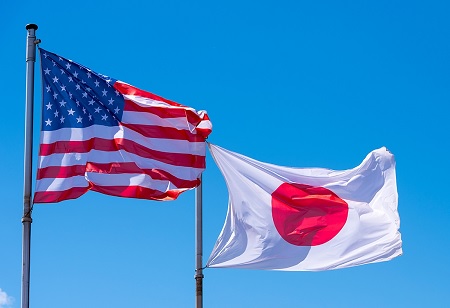
US and Japan Eye $15 Billion Philippine Projects Amid Strengthened Ties

 The United States and Japan are keen to invest at least $15 billion in projects on the Philippines’ main island, reflecting how strengthened security partnerships are translating into increased economic benefits, according to President Ferdinand Marcos Jr.’s investment advisor.
The United States and Japan are keen to invest at least $15 billion in projects on the Philippines’ main island, reflecting how strengthened security partnerships are translating into increased economic benefits, according to President Ferdinand Marcos Jr.’s investment advisor.
The three countries will focus on five key projects within the Luzon Economic Corridor plan, which could become President Marcos' flagship investment initiative, according to Secretary Frederick Go, the president's economic advisor. Among these projects are a cargo rail connecting Luzon’s major ports, estimated to cost $11 billion, and a renewable energy project. “We are reaping the benefits of closer defence ties with the US and other allies in terms of promoting investments”, Go said. The UK is also interested to help fund projects in the corridor, he added.
The Philippines, which has struggled to attract foreign investments compared to its neighbors due to infrastructure deficiencies and additional costs, is looking to capitalize on improved relations with the US and its allies under President Marcos to unlock economic advantages. This effort comes amid increasing regional competition, as Washington and other Western countries seek to diversify supply chains and lessen their reliance on China.
The plan to reinvigorate Luzon, the country’s main economic engine where the capital sits, was unveiled after US President Joe Biden met with leaders from Japan and the Philippines in April. The three allies are bolstering economic ties as their defence relations grow in the face of Beijing’s assertiveness in the region. The Philippines’ alliance with the US is expected to remain strong whoever wins the presidential race in November, Go said. The goal is to start the five Luzon corridor projects during Marcos’ term which ends in 2028, he added.
According to Go, achieving a GDP growth rate of over 7 percent annually within the next four years is possible as President Marcos aims to transition the economy from being consumption-driven to investment-driven. Previous Philippine presidents have struggled to match their neighbors in attracting investments, but Go believes this time is different. The current administration is leveraging Marcos’ foreign policy agenda to boost the economy. Go’s role includes ensuring that investment pledges are effectively implemented and realized. “This is why I’m focusing on improving ease of doing business and reducing the cost of doing business because they are the key pillars to realising an investment-led growth”, said Go, who was president of Robinsons Land before taking on the government post.

